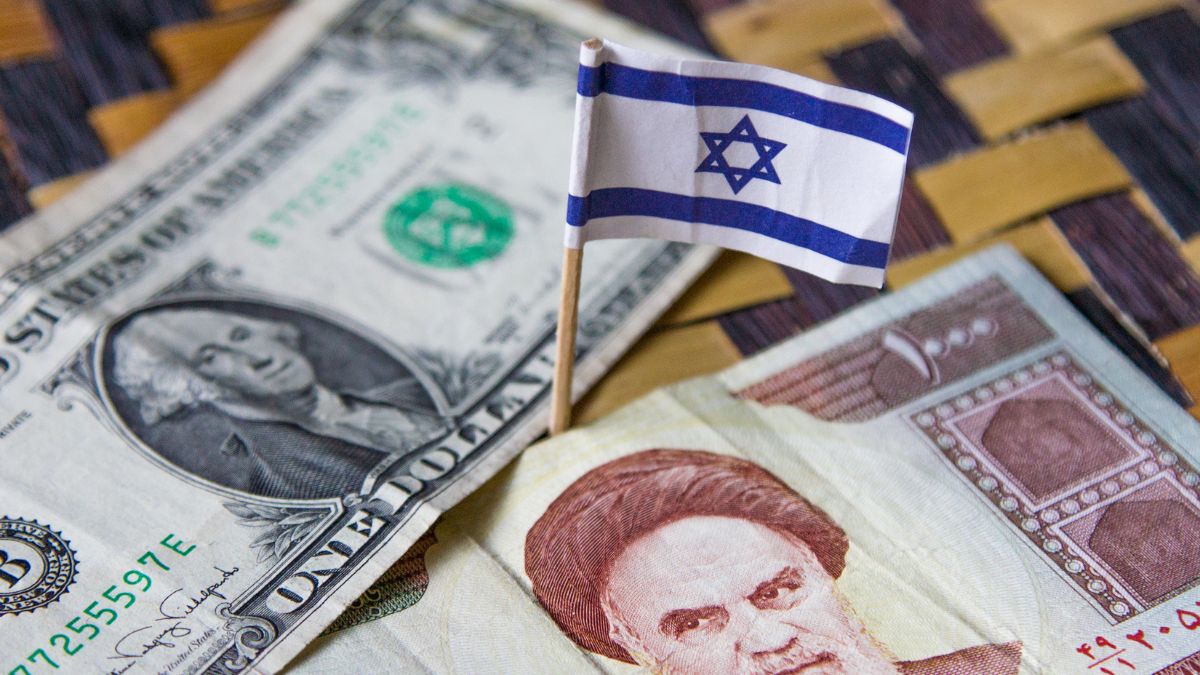
One of the trending questions in search engines is Why is there a war between Iran and Israel? The answer is anything but simple. Understanding the conflict between these two countries, which recently saw the involvement of the United States, is complex, as it is the result of decades of geopolitical tensions, religious rivalries, nuclear ambitions, and a web of alliances that go far beyond just these two nations.
Here’s a brief explanation of the origins, current reasons, and key players involved in this conflict, which is already considered one of the most critical episodes in the Middle East in 2025.
How did the current Iran-Israel conflict start in 2025?
The military escalation between Israel and Iran reached an irreversible point on June 13, 2025, when the Israeli government, led by Prime Minister Benjamin Netanyahu, launched the so-called Operation Rising Lion. According to Israel, the goal is clear: “to dismantle Iran’s nuclear program,” considered by Israel as an existential threat.
Days later, the United States joined the conflict by bombing three key nuclear facilities in Iran: Fordo, Natanz, and Isfahan, which U.S. President Donald Trump described as a “spectacular military success” that resulted in the “complete destruction” of those sites.
Tehran’s response was swift. Iran labeled these attacks as a “serious violation” of the United Nations Charter and the Nuclear Non-Proliferation Treaty, promising “lasting consequences” and reserving “all options” to defend its sovereignty.
Since then, both countries have been locked in a direct conflict, something unprecedented in decades. While tensions always existed, they rarely translated into such overt and public attacks.
Why are Iran and Israel historical enemies?
Although today they are perceived as fierce enemies, relations between Iran and Israel were not always hostile. Until 1979, the two countries maintained close political, military, and economic cooperation. In fact, during the government of Shah Mohammad Reza Pahlavi, Iran and Israel shared strategic interests as allies of the West and opponents of Pan-Arabism (known as Arab socialism) led by Egypt.
However, everything changed with the 1979 Islamic Revolution, when Ayatollah Ruhollah Khomeini overthrew the Shah and established a theocratic regime in Iran. This new government cut ties with Israel, handed over its embassy in Tehran to the Palestine Liberation Organization (PLO), and adopted the Palestinian cause as a core part of its foreign policy.
Since then, Iran has referred to Israel as the “Little Satan,” an ally of the “Great Satan,” which is the United States. For its part, Israel accuses Iran of funding terrorist groups such as Hezbollah and Hamas and of promoting antisemitism.
How did the current crisis in the Iran-Israel conflict escalate in 2025?
Tensions between the two countries have been building for decades, with events such as:
- Covert attacks and cyberattacks between both nations.
- The development of Iran’s nuclear program, which Israel considers a threat.
- Iran’s support for armed groups hostile to Israel in Lebanon, Gaza, Yemen, and Syria, what Tehran calls the Axis of Resistance.
- Both countries’ involvement in the Syrian civil war since 2011.
However, the situation reached a breaking point in 2023 and 2024, following the Hamas attacks on Israel on October 7, 2023, which left over 1,200 people dead and triggered a massive Israeli offensive in Gaza.
In response, Iran increased its support for allies such as Hezbollah and the Houthis in Yemen. Finally, in April 2024, Tehran launched dozens of missiles and drones into Israeli territory following an Israeli attack on its consulate in Damascus that killed top Iranian commanders.
Since then, direct attacks have multiplied, culminating in the Israeli offensive launched in June 2025 with the military backing of Donald Trump’s administration in the United States.
What role does Iran’s nuclear program play in the conflict?
The main argument of Israel and the United States to justify their attacks is to prevent Iran from developing nuclear weapons.
Iran insists that its nuclear program is for peaceful purposes, but Western powers and Tel Aviv remain skeptical. Recent history fuels that mistrust, especially after events such as:
- The use of the Stuxnet computer virus, allegedly developed by Israel and the United States, to sabotage Iran’s nuclear facilities in the 2000s.
- The assassinations of prominent Iranian nuclear scientists, attributed to Israeli intelligence services.
- Reports from the International Atomic Energy Agency on uranium enrichment in Iran.
For Israel, preventing Iran from becoming a nuclear power is a top national security priority.
What are the global consequences of this war?
The Iran-Israel conflict 2025 is not an isolated confrontation. Its impact is being felt throughout the region and has global implications:
- Instability in the Middle East: The conflict has sparked clashes in Gaza, Lebanon, Syria, and Yemen, with thousands of civilian casualties and displaced people.
- Rising oil prices: Attacks in the Persian Gulf and threats to export routes have driven up energy prices, affecting the global economy.
- Risk of a regional war: There are fears that powers such as Saudi Arabia, Turkey, or Egypt could be drawn into the conflict.
- U.S. intervention: Washington’s military support for Israel raises the possibility of a direct clash between the United States and Iran, with unpredictable consequences.
- Global diplomatic tensions: The UN, the European Union, China, and Russia have called for de-escalation, but so far without success.










